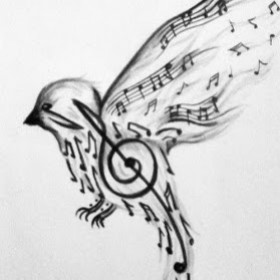Since 2000, televised talent shows have become increasingly popular across the nation. Some of these are general talent shows (Britain’s Got Talent), some are specifically for singers (The Voice UK), some are specifically for dancers (So You Think You Can Dance) and others are more like reality-TV shows where celebrities become the contestants for a higher entertainment factor (Dancing on Ice & Strictly Come Dancing). The idea behind the latter is that the celebrities have no prior experience so that the playing field is fair…this is all very well, however current complaints are that the bias stems from the judging panel and some even believe it goes as far as the television company. I have researched the background information behind these speculations in order to attempt to prove or disprove the claims. This is important to me as the injustice should be non-existent, particularly on a show so widely viewed.
Dancing On Ice was first televised on 14th January 2006, with a judging panel that consisted of 3 World Champion ice/figure skaters (Nicky Slater, Robin Cousins & Karen Barber) and two world-renowned choreographers (Jason Gardiner & Karen Kresge - who was known for her choreography of ‘Seattle Symphony on Ice’). The latest series (January 2018) saw Torvill & Dean, who used to coach the contestants, take to the panel, alongside the aforementioned Jason Gardiner…and Diversity street dance leader, Ashley Banjo. It’s evident that despite Torvill and Dean being perhaps the best people to be on an ice-skating judging panel, the same cannot be said for Banjo, whose repertoire of choreography and dance styles revolves only around hip-hop and street - not the styles you would find on a show such as Dancing On Ice. This mirrors the judging panel of Strictly Come Dancing: when it was first aired in 2004, the judging panel consisted of Len Goodman (British Champion in Ballroom), Arlene Phillips (one of the most well-known choreographers in theatre, film & music - founder of Hot Gossip, choreographer of the original Annie film and choreographer of music videos, including Duran Duran and Queen.), Craig Revel-Horwood (choreographer, performer and director of many theatre/West End productions) and Bruno Tonioli (a dancer from many music videos, productions and tours). In 2009 the BBC sacked Phillips unexpectedly, with claims that she was too ‘old’ and ‘brutally honest’. A former celebrity winner from the series two years previously replaced her (Alesha Dixon). The public did not take this decision lightly, as although she is considered a winner of the show, she was a celebrity contestant rather than a professional, so to have her criticise and mark the actual professionals was a joke. I agree with this newspaper report (https://www.mirror.co.uk/tv/tv-news/alesha-dixon-wont-be-missed-by-strictly-170294) whereby they note that she never had any comment about the dancing aspect, she only ever repeated what another judge had said, or made a comment on their looks/dress. Could inexperienced judges such as Ashley and Alesha have an impact on the scores and therefore the public vote? Dancing On Ice fans this series implied this was a possibility when they took to social media to shame the judges for their skate-off decision (https://www.ok.co.uk/tv/dancing-on-ice/1281584/dancing-on-ice-2018-who-left-voted-off-skate-off-judges-results-stephanie-waring-lemar-fix-itv-news). Celebrity contestant Lemar Obika was saved over Stephanie Waring despite the fact that he even fell over at the end of his routine and danced the same choreography as the previous week. Fans called this a ‘fix’ but no action to rectify the skate-off was made. Having personally interviewed 14 people, 92.9% of them claimed there to be unfair or inconsistent marking on one or both of the shows. 57.2% of the 14 interviewed also believe that inexperienced judges had an impact on the scores and therefore the public vote. One said [on whether Alesha Dixon had a negative impact] that it was: “Very likely. There are people out there that would listen to her comments, especially her fans, who would go with her choice. Judges like that shouldn't be allowed.” Another agreed, insisting: “Yes she will have an impact on scores as lots of viewers will take her word as an ‘expert’ opinion even though she isn’t.” A few disagreed, as she is just “one of a multiple panel” so the other judges will balance it out, whilst another argued that she wouldn’t have an impact on the scores as she was “inexperienced so no one would have listened to her.” This is an issue because inexperienced judges lead to inconsistent marking, which leads to an unfair leaderboard, which can lead to a biased public vote. This is important to me as not only do I like things to be fair, but knowing the professional dancers personally, I know how much the inconsistency irks them.
Whilst on the subject of disliked judges, Shirley Ballas is another Strictly Come Dancing judge to feel the wrath of the public. Having joined the panel ready for the last series (2017), I was at first relieved to hear she would be taking over from Len Goodman - as Goodman reached the end of his time on the panel, he began to dish out higher marks when it wasn’t required, simply because it was his last year and he was feeling generous. This is another problem of inconsistency between the scores - whilst Revel Horwood’s scores were realistically low for the week they were on, Goodman had already started awarding the scores at the higher end of the spectrum by Week 4: this not only unfairly arranges the leaderboard, but it leaves the couples with no room for growth and progression. Ballas is an international specialist in Latin with plenty of years experience in judging Ballroom and Latin competitions around the country, so I was excited for her to join the panel, thinking that she would bring the scores back down to a realistic level. At first, it was perfect - she even went as far as specifically naming some of the figures that a couple had performed, such as a Double-Reverse Spin in a Waltz or the shaping of a contestant’s Chassé Cape in their Paso Doblé. As a Ballroom and Latin dancer of 13 years, I was thrilled to have someone on the panel that evidently knew what they were talking about and I loved how she commented on the aspects of the dance that I had mentally made a note of myself. However, unfortunately this did not last for long and soon members of the public were throwing about cries of ‘favouritism’. I didn’t blame them - I was thinking it too. All of the judges showed favouritism this series, which was evident in their scoring versus the content of the dance. One of the biggest highlights of this for me was with Debbie McGee (partnered with Giovanni Pernice), in particular after their Halloween Week Charleston. They scored 39/40, however Debbie tripped, one of the lifts was nearly a ‘drop’, Debbie’s swivels needed work and also with a slow 20 second start of no dancing and a 13 second change of outfit, a third of the routine had zero content…yet they were marked higher than those who danced solidly for the 2 minutes. I wasn’t the only person to find the marking on this particular dance disappointing - in the YouTube comments of the uploaded clip, @zehava101 said: “how did this get more than Aston’s Paso, Aston’s was better technically and was more of a showstopper dance and deserved 40 if this was marked 39 - it's not that Debbie dance was definitely a 39 but I mean Shirley marked unfairly. I mean she gave Joe’s Paso a 10 - even though it was traditional it didn't have as much dance content and was nowhere near as intense or as good as Aston’s dancing. It just proves that Shirley has favourites.” Others took a similar view, commenting: “Sorry I know they got 39 but doesn't she trip at 1.30?” (@RuthCorris); “how did she get 10's. She slipped? Did they just ignore that?”
(@roter13); “They should cut out the long lead ins & show dancing. The routines should be at least 2 minutes. The ending of this dance was silly as she could have really nailed a proper dance...tradition counts with 2 of the judges.” (@DG); “TBH that bored me half to death and I love the Charleston - sorry not worth a ten majorly overscored once again.” (@AnnaSimpson). Ballas kicked back at the public’s claims of favouritism with “they’re not Ballroom dancers”, implying that they don’t know what they’re talking about. As someone who does, I still back the public. (https://www.thesun.co.uk/tvandshowbiz/4809498/strictly-shirley-ballass-slams-over-marking-claims/) This is important to me as favouritism is becoming increasingly common nowadays, but blatantly ignoring obvious mistakes in order to award high marks is taking it too far.
The final public claim of unfair marking is not from the judges, but rather the television company itself (BBC and ITV). Claims of ‘rigging’ the votes have sprung up over the years and been dismissed however the claims are becoming increasingly frequent. Even ex-professional dancer of Strictly Come Dancing (Ola Jordan) spilled to the press that the producers now watch the celebrities dance before they make the pairings, so they see who are the best and the worst and partner them up accordingly: “It’s unfair because it means they can decide which professionals will stay in the competition longer. Jay McGuiness is clearly the best dancer so they gave him Aliona Vilani, who went out in the first week for the last two years.” Alongside this, 64.3% of the 14 people that I interviewed said that they believe that the votes have been rigged/made bias by the BBC. One of the people I interviewed said that when they went to vote by phone for Danny Mac and Oti Mabuse in 2016, the line was not engaged but unobtainable - implying that the BBC had intentionally made it impossible for them to win. Alongside this, Dancing on Ice professional skater Matt Evers pressed claims that the producers had intentionally made his celebrity partner Candice Brown look worse off in her rehearsal footage than he claims she was. He also mentions that they were given a slow song to skate to, compared to the other couples, meaning that they were more exposed and vulnerable. This may explain why the judges said she looked nervous - she wasn’t able to be confident and sassy with such a slow tempo track. (https://www.thesun.co.uk/tvandshowbiz/5293817/dancing-on-ice-2018-professional-matt-evers-candice-brown-judges/)
Through my research, it’s evident that the marking and producing of such shows as Dancing on Ice and Strictly Come Dancing are a grey area - there is no solid proof whether rigging and bias influence from the producers does or does not occur, however there is increasing evidence that it’s a possibility. So how can it all be stopped? Several of the people which I interviewed feel that inconsistent/unfair marking is an unstoppable feature of the show. One idea to rectify this problem was suggested by @JoMac39 on Twitter who said: “I think there should be a system where the marks can't be higher than a certain score until a certain week as this shows progress through the weeks. For example....max score is 5 on week 1 and 2.” This is an idea that has been discussed between myself and a friend before, as it stops the judges from being able to overmark and it gives the couples room for development as they progress through the weeks. Another response was from @CakeGenie via Twitter who suggested: “A firm set of rules for the judges, & maybe break the marking down into sections - mark out of 5 for content, characterisation, technique, & also a 'handicap' score which will take into consideration the celeb's previous dance experience, which is set at the beginning. So for example, last year Debbie may have had a handicap of 1, whereas Susan or Jonnie a handicap of 5.” This follows the social media outbreak during the last series of Strictly when it was discovered that contestant Debbie McGee had received professional ballet training, which breaks the show’s ‘rule’ of only hiring celebrities with no prior dance experience. Her showdance (which was meant to showcase everything she had learned on the show) was mainly balletic figures with very little Ballroom and Latin content. (http://www.google.co.uk/url?url=http://tv.bt.com/tv/tv-news/debbie-mcgee-criticised-after-ballet-showdance-in-strictly-final-11364237480882&rct=j&frm=1&q=&esrc=s&sa=U&ved=0ahUKEwj4u9WG29DbAhVCQcAKHee_DmwQFggwMAU&usg=AOvVaw1LK5qF77GyatPKPVyIzHGL) This is an issue as she therefore had an unfair advantage over the other contestants.
In conclusion to this essay, the general consensus is that inconsistent/unfair marking is inevitable on televised reality-TV dance shows, until a standardised scoring system (or other method of control) is put into place. Investigations should also possibly be made concerning the partnering of professional and celebrity and also the counting of public votes.






I think the biggest thing that plays into many of these televised competitions is that the public are split down the middle between voting for their favourite personality and their favourite performer in terms of skills, and a lot of the judges have similar splits (but theirs are perhaps between skill and what the production companies want to happen).
Of course, talent is subjective, which is another issue unto itself!